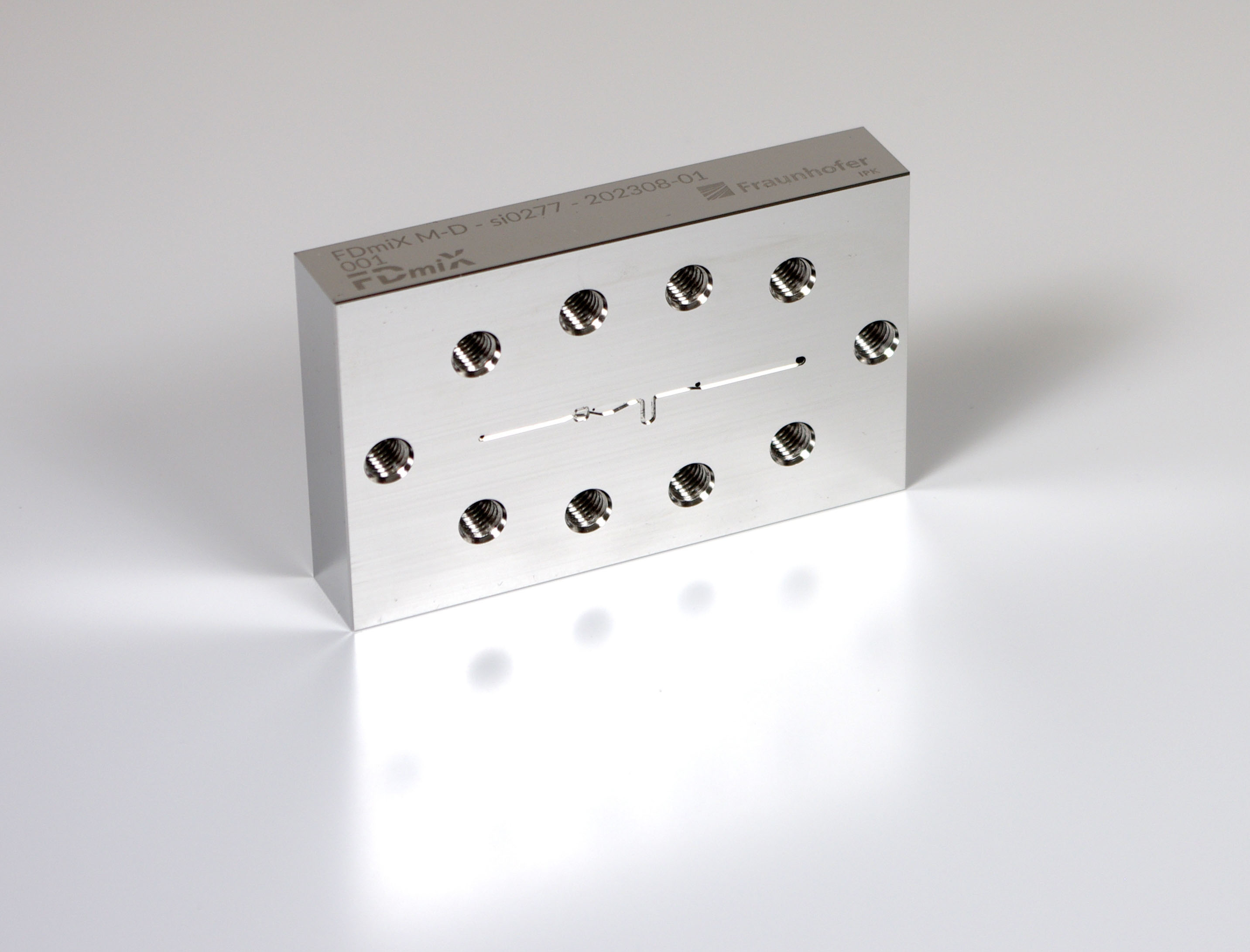Agile, fit for circularity and digitally supported – these are the requirements for modern production. To meet them, manufacturers must put a spotlight on their technologies, machines and systems.
One of the ways our researchers are getting production ready for the circular economy is by developing process and tool technologies for dry machining. By not requiring liquid dielectrics and coolants or peripheral equipment, they make it possible to avoid environmentally harmful waste, as well as saving resources and energy. Dry and residue-free machining using CO2 shot peening, for example, is of interest for large and complex lightweight components in the wind energy, aviation and automotive industries. For this purpose, a new system is being developed at Fraunhofer IPK that is designed to increase productivity by up to 25 percent and reduce processing costs by up to 60 percent compared to conventional systems. In terms of cleaning processes, wet-chemical processes have been replaced by CO2 technologies for some time now. CO2 snow blasting technology is being developed further for cleaning bipolar plates for fuel cells and electrolyzers. Prof. Julian Polte, head of the Production Systems division at Fraunhofer IPK, is convinced that »if manufacturers succeed in making their production processes more energy- and resource-efficient, they will automatically increase their productivity and reliability as well.«
 Fraunhofer Institute for Production Systems and Design Technology
Fraunhofer Institute for Production Systems and Design Technology